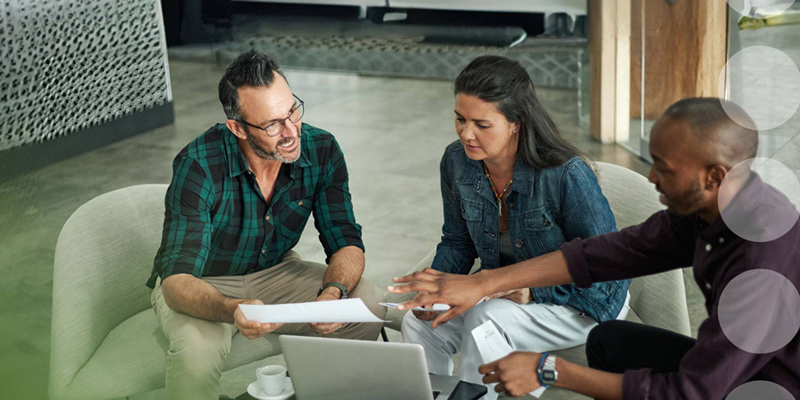Our Voice
Welcome to our insights page. A place to settle in and read about our perspectives on the latest trending topics in staffing, advice to help you land your next job, and a view into HelloKindred life.

Coffee & Careers: The New Diversity Standards for 2024
This conversation will challenge misconceptions surrounding diversity, equity, inclusion, and belonging in the 2024 workplace.
Read More

What is Fractional Hiring?
In today's ever-evolving business landscape, the fractional recruitment model stands out as one of the most interesting industry trends in recruitment, reshaping…
Read More

Embracing digital transformation in people management
Once considered a buzzphrase, “digital transformation” is now a concrete imperative for all businesses – and not least in the realm of…
Read More

The critical role of leadership in mastering corporate change management
Change is an inevitable part of doing business, driven by evolving opportunities and challenges. But navigating corporate change management remains a complex…
Read More

Skills disrupted: bridging the talent gap
Traditionally desirable skills have been disrupted by rapidly evolving business needs, leaving a hole in the workforce that needs filling.
Read More

Talent acquisition and retention priorities in 2024
These days, people management leaders have not only to respond to immediate situations, but also to plan strategically for the long-term future
Read More

Ask Me Anything – Marketing Trends and Strategies for 2024
Rewatch this special Ask Me Anything session about Marketing Trends and Strategies for 2024 on LinkedIn Live.
Read More

Navigate people management landscape
The survey’s findings highlight crucial insights for leaders seeking to navigate the complex people management landscape.
Read More

Embracing the AI Revolution: A New Era in Talent Management
The landscape of the modern workplace is undergoing a seismic shift, fundamentally altered by the advent of artificial intelligence (AI).
Read More

Beyond Headcount: Navigating a Post-Layoff Landscape with HelloKindred
HelloKindred’s flexible staffing solutions enable businesses to navigate post-layoff challenges seamlessly.
Read More

Maximizing ROI: How to Get the Most from Your Marketing Budget with HelloKindred
In an era where every penny counts, ensuring the highest return on investment (ROI) for your marketing budget has never been more…
Read More

Collaboration vs Operation: How Staffing Solutions Support an Independent Working Model
In the dynamic world of marketing, CMOs often grapple with the decision between fostering collaboration and maintaining an operationally independent working model
Read More

Smoothing Out Agency Relationships: How to Balance In-House and Outsourced Talent
Navigating the complex dynamics of agency relationships can be a cumbersome task for CMOs. Striking the right balance between in-house and outsourced…
Read More

Coffee & Careers: Marketing Careers in Manufacturing
The manufacturing industry is growing rapidly, and there is a high demand for skilled marketers.
Read More

How Flexible Staffing Can Speed Up your Digital Transformation
Flexible staffing solutions through a marketing staffing agency is the most holistic and cost-effective way to a successful digital transformation.
Read More

Leveraging Market Trends with Agile Staffing Solutions
The trick to keeping up with marketing trends is using agile and flexible staffing solutions. Here is why and how you can…
Read More

Marketing Strategy: Why Outsourcing Talent Could be Your Secret Weapon with HelloKindred
In the swiftly changing business landscape, having a robust, innovative marketing strategy can provide your company with a competitive edge.
Read More

Unlocking Creative Potential Amidst Hiring Freezes: How Flexible Staffing Solutions Can Keep Your Business Thriving
Flexible staffing solutions are the key to keeping a business thriving through hiring freezes and layoffs
Read More